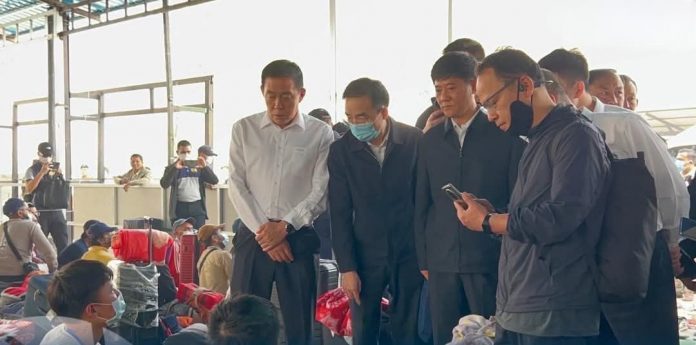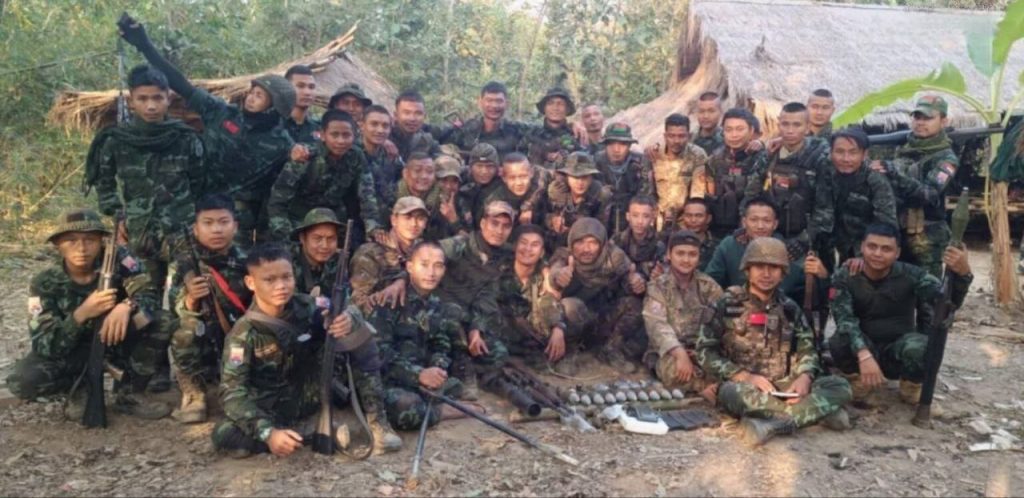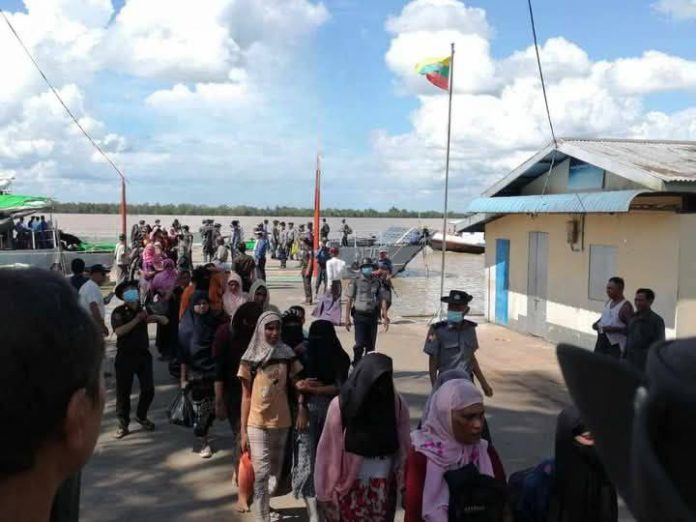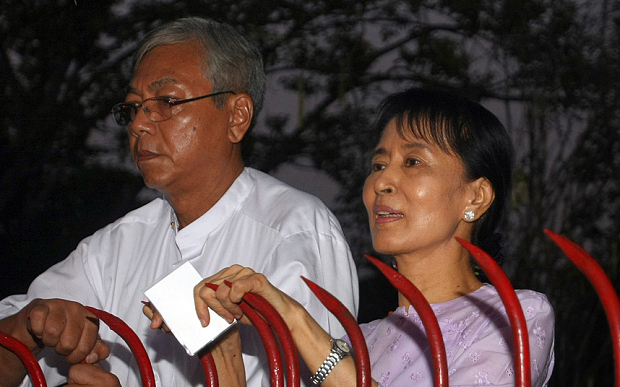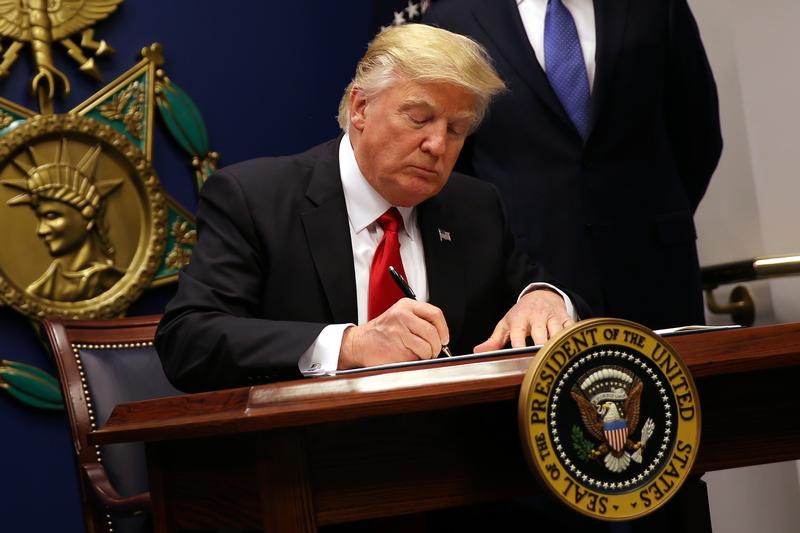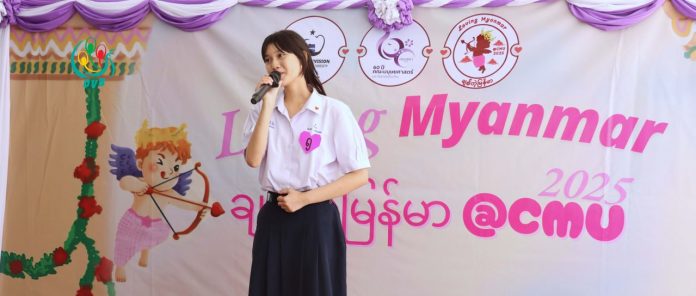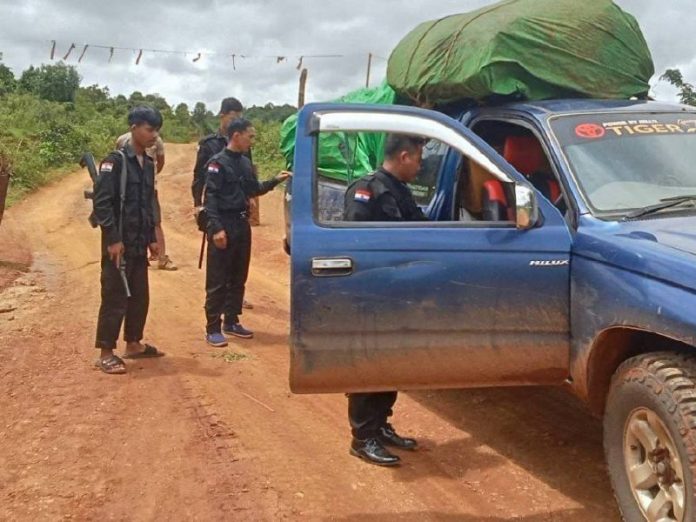Guest contributor
Pacifist Farooq
The 90-day suspension of funding to the United States Agency for International Development (USAID) by the Trump administration in the U.S. has affected millions of people around the world.
The deprivation of medicine and treatment to patients with HIV/AIDS across the globe, flight cancellations for refugees in Malaysia, and the shutdown of field hospitals in refugee camps in Thailand, including in the world’s largest refugee camp in Bangladesh.
President Trump’s executive orders have further pushed the vulnerable to the brink. Among those most affected are the Rohingya, who have faced decades of persecution and genocide in Myanmar simply because of their race and Islamic religion.
On Jan. 20, the Trump administration withdrew all U.S. foreign aid, including Bangladesh, which hosts over one million Rohingya refugees who survived the 2016-17 military crackdown in northern Arakan State, which has been called ethnic cleansing by the U.N. and genocide by the U.S. in 2022.
It’s also the basis for a 2019 genocide case at the International Court of Justice (ICJ) and an arrest warrant request for Min Aung Hlaing on crimes against humanity at the International Criminal Court (ICC) by its Chief Prosecutor Karim Khan.
Following a meeting between Khalilur Rahman, the high representative of Bangladesh’s interim leader Mohammad Yunus, and the U.S. embassy in Dhaka, it confirmed that life-saving food and nutritional support for the Rohingya sheltering in Bangladesh are exempted from the U.S. aid freeze.
However, site management and landfill activities were not included, and the operations of at least five hospitals in the Bangladesh refugee camp were suspended due to the U.S. cuts, according to Bangladesh’s Office of Refugee, Relief, and Repatriation (RRRC) Commissioner Mizanur Rahman.
The decision to suspend funds will have a devastating impact on the lives of Rohingya refugees in Bangladesh. The refugee camps around Cox’s Bazar is an already organised hell fenced with barbed wire, where the refugees are fully dependent on World Food Programme (WFP) assistance.
Many rarely have access to fish in their meals, except for a few of those who are versed in English and fortunate to find a job at an international non-governmental organization (NGO).
I know this because I lived there for over five years. When we try to leave the camp to work, their fates end up with detention and deportation back to the refugee camps.
Moreover, formal education is unavailable for Rohingya children, who can only receive up to class eight of non-formal education from NGOs. The Rohingya youth are feeling hopeless and desperate.
As a result, they can easily be convinced to join armed groups. Besides the shortage of food and limited education, healthcare is far worse. Due to congestion and malnutrition, refugees are usually affected by measles, scabies, and hepatitis C.
The healthcare facilities can only provide medication and treatment to patients in critical condition because of insufficient funds. The situation of Rohingya refugees is becoming appalling.
A reduction in aid means a deepening shortage of food and malnutrition, destruction of hundreds of children’s lives, and limited access to life-saving medications, maternal health services, and vaccinations, increasing the risk of outbreaks of disease.
The U.S. funding freeze will not only increase the vulnerability of Rohingya in the Bangladesh refugee camps but it will also threaten the existence of Rohingya remaining in Arakan.
Most of them are internally displaced persons (IDPs). They are somehow surviving by eating whatever they can. The insecurity, military blockades, and movement restrictions, have severely reduced the ability of humanitarian aid deliveries to reach those in need.
With their movement restricted even from one village to another, the Rohingya have been facing a severe humanitarian crisis for many years. The suspension of funds will further deteriorate the situation and force them to leave Arakan for neighbouring countries to avoide famine.
The suspension of aid may also jeopardise Rohingya advocacy and political representation. The Rohingya have long been struggling for political representation both inside and outside of Myanmar.
In Myanmar, we are sometimes labelled as “Bengali”, sometimes “Muslim”, and at other times “foreigners”. The same is true with Bangladesh.
For those of us who have survived the genocide in Myanmar and took refuge in Bangladesh, we have no documents identifying us as Rohingya but have become known as “forcibly displaced Myanmar nationals.”
Everything for us is decided by others. We don’t even have the right to decide our own name. The loss of financial support could further worsen the Rohingya representation in policy-making processes.
Regarding Rohingya advocacy, many of the organizations that advocate for Rohingya rights are dependent on U.S. funding. These organisations have done some excellent jobs, such as documenting human rights violations committed by the Myanmar military and lobbying for legal action at the ICJ and the ICC.
Without U.S. funding, these human rights organisations may find it difficult to run advocacy programs that provide legal aid and document the recent human rights violations committed against the Rohingya by both the Myanmar military and the Arakan Army (AA), a Buddhist Rakhine nationalist armed group that has gained control of fourteen out of seventeen townships in Arakan.
Most importantly, the withdrawal of funding could weaken international pressure over the Myanmar military regime, which has killed over 6,263 civilians and has detained over 21,793, arresting over 28,526 in total since the 2021 coup.
Over 3.5 million people have been displaced from their homes in Myanmar, according to the U.N. Tens, or potentially hundreds, of thousands of citizens have left the country.
The injustice and suffering imposed on innocent civilians nationwide is totally unjustifiable and unbearable. In the northern part of Arakan, even though the military is absent, its landmines are killing civilians there almost every day.
Sometimes I feel like I’m living in a jungle where there are no rules of law and accountability for the crimes perpetrated in my country. For years, the U.S. has used aid as a tool to pressure the Myanmar military into respecting human rights and democracy.
The USAID has played a crucial role in funding organizations that monitor human rights abuses, support refugees, and promote democracy. The suspension of funds will, in fact, weaken the international leverage on the Myanmar military to be held accountable for the genocide against the Rohingya and the crimes against humanity, ethnic cleansing, war crimes, and mass murder, committed against other ethnic nationalities across Myanmar.
Furthermore, President Trump’s funding freeze hits the students and scholars from Myanmar. During a signing ceremony at the White House, The president announced that he had “blocked $45 million [USD]” for diversity, equity, and inclusion (DEI) scholarships for Myanmar students.
Those students whose scholarships were suspended are among the future leaders who could contribute to a more diverse and inclusive Myanmar. Those who did not have the opportunity to study are usually narrow-minded, illiberal, and racist.
These kinds of moves may hinder Myanmar from strengthening diversity and inclusiveness and could have a long term negative impact on the Rohingya community.
President Trump’s executive orders also limited the operations of Mizzima, an independent news media banned after the 2021 coup. Since then, all the independent media have fled, mostly to Thailand, as their licenses were revoked for reporting on human rights abuses by the military.
The independent media play a key role in educating the public about how to protect minority groups, including the Rohingya. For example, recent reports exposed that at least 250 Rohingya, who were due to be released from detention, were not by the regime.
If there is no independent media, there are no ways of such news getting out of Myanmar. Yet many news outlets, including Mizzima, are quite hesitant in covering the abuses against the Rohingya being perpetrated by the Arakan Army (AA).
Indeed, many Myanmar media were and are complicit in the genocide against the Rohingya. Nevertheless, there are very few independent news media left to report on these issues.
If we lose independent media, regime-controlled media would dominate the information space, spreading propaganda, disinformation, and hate speech against us again.
With the U.S. retreating, China is more likely to fill the media void and further expand its influence in Myanmar. It will further strengthen the military regime, which will lead to economic and strategic interests overtaking human rights and democracy. This will further exacerbate the Rohingya crisis.
Without sustained international support, the chance for Rohingya to have justice for the genocide is very slim. We might face even greater political isolation, reduced chances of regaining citizenship, and prolonged displacement.
For the Rohingya, the U.S. funding freeze and aid suspension is not just a financial setback, but it’s a matter of survival and existence on this planet.
Pacifist Farooq is a Rohingya poet, academic, and author of A Lost Bird Between Genocide and Displacement. He is now based in Malaysia.
DVB publishes a diversity of opinions that does not reflect DVB editorial policy. We’d like to hear what you think about this or any of our stories: [email protected]



